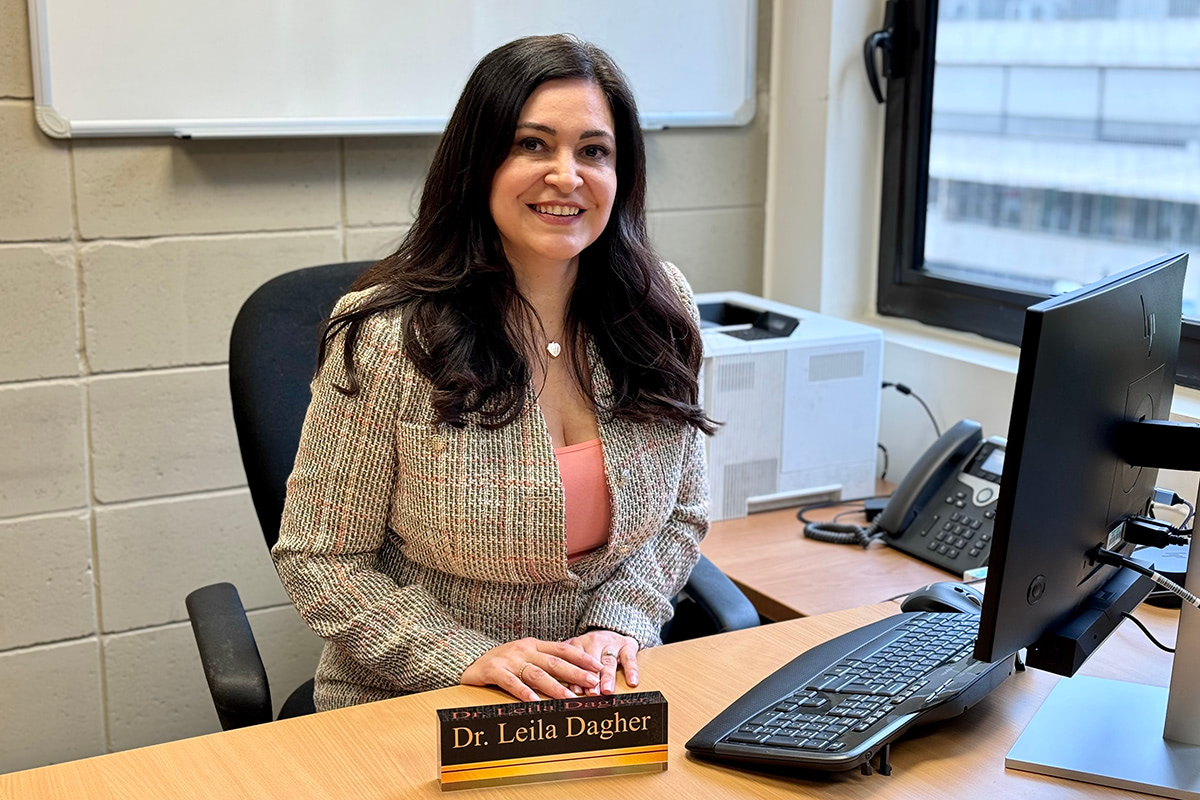New Center to Channel LAU Expertise Into National Policy
Economic policy expert Dr. Leila Dagher is poised to lay strong foundations for the new LAU Center for Policy Analysis.
Last fall, Dr. Leila Dagher joined LAU as assistant to the president for public policy with the mandate to establish the new LAU Center for Policy Analysis, an advanced think tank whose goal is to bridge the gap between researchers and policymakers.
“In addition to informing and improving public policy in Lebanon and the region through independent and objective policy-related research analysis and recommendations,” wrote Dr. Dagher, “the center will share data insights and guidance, which will help avoid the fragmented policymaking that resulted in our deep-lasting, multi-dimensional crises.”
The center is one of several initiatives launched by LAU President Michel E. Mawad to help avert future existential threats to the country and, by extension, the university. There is untapped potential in Lebanon for public policy think tanks, and the center can act as a catalyst to start an intellectual revolution that sets the stage for the policy debates of this century.
Before taking up her position at LAU as assistant to the president for public policy as well as an associate professor of economics at the Adnan Kassar School of Business, Dr. Dagher was an associate professor of economics at the American University of Beirut. A specialist in energy policy, she is currently an editor for Energy Policy and sits on the editorial boards of Finance Research Letters and Utilities Policy. She has also been an adjunct lecturer at George Washington University, Washington DC, since 2016 and is currently a co-author on the United Nations Environment Program flagship report, the Global Environment Outlook GEO-7.
Dr. Dagher has published more than 25 peer-reviewed articles, applying in her research her econometric knowledge to the areas of energy, environmental, and financial economics with a focus on producing policy-relevant studies.
In addition to her academic track record, Dr. Dagher is well-versed in policy implementation, having served as a committee member of the Lebanese delegation negotiating with the IMF in 2020 and has in total spent four years as an economic adviser to the government.
“I had the experience of trying to convince policymakers of the best set of policies, how to change existing policies, how to introduce new legislations, and so on,” she said. “It is a challenging environment, but you cannot just sit and do nothing.”
Members of the center will consist of multidisciplinary LAU faculty and staff, including experts in economics, education, demography, political science, governance, energy, sociology, public health and environmental resources, with a view to introducing external experts in due course, said Dr. Dagher.
Initially, the topics will focus on a limited number of tracks but Dr. Dagher expects that six—energy, economics, education, health, the environment, and social issues—will eventually be covered since they are interlinked.
The center will also encourage civic engagement by having students collaborate with researchers and analysts while facilitating internships at public institutions. “The youth are a significant portion of the population, so their engagement in the policymaking process is essential,” said Dr. Dagher.
To keep the research and analysis endeavors active, she added, not only should the topics be relevant and timely, and the research entirely objective, but the output should be adequately communicated to outside policymakers.
“This is why the first set of training I plan to introduce will involve experts who are at the same time scholars and have served in governmental positions to train Lebanese researchers in framing their work in a way that policymakers can understand and apply,” she said. “I think this is the most important aspect of all this work.”
